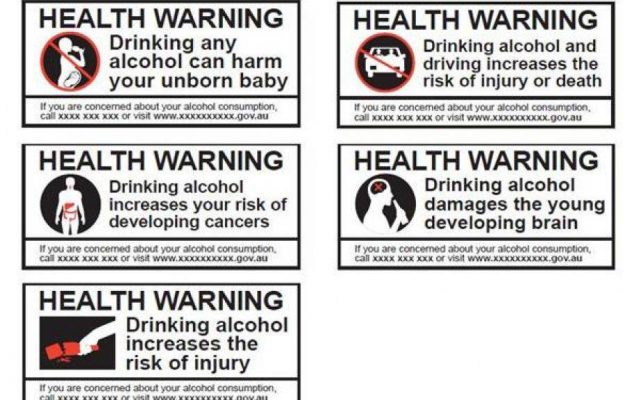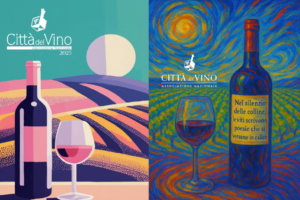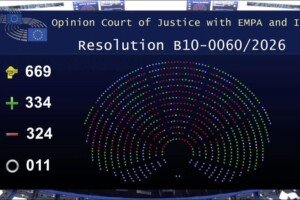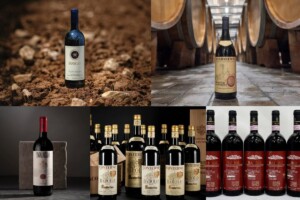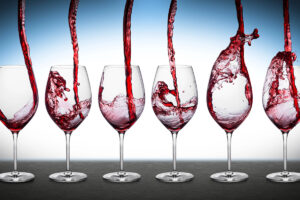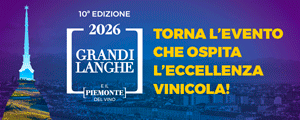Ireland has been sounding the alarm since June 2022, not too loudly, perhaps. Now, instead, what was once just a possibility has become a certainty. Consequently, it has become a threat to alcoholic beverages and, therefore, the wine sector. Dublin had opened the rift on June 21, 2022 (we wrote about it here), notifying the European Commission of the “Public Health Alcohol Labelling Regulations” with which the Government intended to introduce the obligation to report indications relating to cancer, pregnant women and liver disease on labeling and presentations of alcoholic beverages. This was a big jump forward that went beyond what the "Beating Cancer Plan” had established, which had managed to avoid introducing “health warnings”.
From that moment on, the European Union Commission had until September 22nd to present its objections, which, however, were never manifested. Therefore, once the moratorium period expired at the end of December 2022, Ireland could adopt a label for wine, beer and spirits indicating warnings such as “alcohol consumption causes liver disease” and “alcohol and terminal cancer are directly connected”. Brussels has given the go-ahead in spite of opposing positions from Italy, France and Spain and six other European Union states, which consider the measure a barrier to the domestic market. Further, the Commission has announced joint initiatives on labeling alcoholic beverages in the context of the plan to beat cancer. Now the danger is that other countries could follow the Irish example.
Lamberto Frescobaldi, president of the Italian wine union, Unione Italiana Vini (UIV) said, “Brussels’ silent approval to Dublin related to health warnings on labels of alcoholic beverages represents a dangerous leap forward by a Member country. According to Unione Italiana Vini (UIV), the European Commission’s lack of intervention jeopardizes the principle of free trade of goods within the Community, and sets an extremely dangerous precedent on wine consumption, in terms of labeling alarmist messages. We fear that the Directorate-General for Health will want to adopt this approach at the European level in the next few months, and in the meantime will let individual member countries have free initiative to legitimize systems adopted without a prior public debate at the European level. Today's events”, Frescobaldi concluded, “mark a paradoxical and unmanageable scenario, made up of a Babel of labels within the European Union that unfortunately, do not solve the problem of alcoholism, which should be based on a responsible approach to consuming diverse products”.
Micaela Pallini, president of Federvini, said the Irish legislation, which would apply criminalizing messages regarding the relationship between alcohol and health on all alcoholic beverages sold in the Country, is “unilateral, discriminatory and disproportionate”. The European Commission has not acted on the legislation, FEDERVINI said, and therefore Ireland has received a substantial go-ahead to indicate that alcoholic beverages could cause tumors and liver disease.
“It is a unilateral system that divides the European single market. It is also a discriminatory method because it does not distinguish between abuse and consumption, while it criminalizes our Mediterranean culture products, by not bringing measurable and effective benefits to the fight against irresponsible consumption”, Micaela Pallini continued. “We are asking the Italian Government to act quickly and to study all possible ways to oppose a rule against common sense and reality. Perhaps the time has come for the issue to be dealt with at a political level within the EU, not alone, but with European partners who have already expressed serious perplexities about this type of regulation. We need to take a stand to counteract the silence of the European Commission”, concluded the president of Federvini.
COLDIRETTI also agrees that this is a dangerous precedent, as the risk would be opening the doors to Community legislation that would jeopardize the supply chain in Italy, which guarantees 1.3 million jobs from field to table, and is the main representative of agri-food exports. “It is totally inappropriate to integrate the excessive consumption of spirits, typical of Nordic countries, with the moderate and conscientious consumption of quality products with lower alcohol content; for instance, beer and wine, which in Italy have become the emblem of a slow lifestyle, mindful of the psycho-physical balance that helps a person feel good about her/himself, opposed to the unregulated intake of alcohol”, Ettore Prandini, president of Coldiretti, commented. “The commitment of the Union to protect the health of citizens is right”, according to Coldiretti, “and cannot be translated into simplistic decisions that could unjustly criminalize individual products regardless of the quantities consumed”. It is a choice that could cause unjustified fears in consumers, as demonstrated by an online survey conducted by COLDIRETTI, which indicated almost one in four Italians (23%) would stop drinking wine or would consume less, if they found alarmist writings on labels, like the ones on cigarette packets. Massimiliano Giansanti, president of Confagricoltura, on hearing the news of the non-opposition to the Irish regulation scheme, today, said he was “especially concerned about the prohibition drift that the European wine sector is facing. The Commission has not listened to the doubts that Italy, along with numerous other Member States, has expressed opposing the measures the Irish legislation has introduced, creating a serious precedent and a potential obstacle to domestic trade”. The regulation plan - Confagricoltura emphasized — introduces an obligation to convey health messages related to cancer, liver disease and pregnant women on labels and presentations of all alcoholic beverages placed on domestic markets, including wines.
The Italian government was the first to send its comprehensive and detailed position to the European Commission, expressing its opposition to the measure, as it sets a dangerous precedent for other similar initiatives that could be presented by other countries “It is necessary to oppose these decisions, evidencing that it is only alcohol abuse, and not moderate consumption, that can cause harmful effects on health”, Giansanti concluded. “Adopting preventive tools and educating to conscious consumption will be the only way to avoid the phenomena of alcoholism”.
Finally, Paolo De Castro, a member of the Agriculture and Rural Development Commission, one of the long-term Italian parliamentarians and a reference point in the Commission, commented from the EU Parliament he is surprised “ that the European Commission has not taken into consideration the position, approved by a large majority of the EU Parliament, which, in the resolution concerning the fight against cancer last February, categorically excluded introducing health labeling systems, such as those found on cigarette packets”.
According to the MEP, “once again we must deal with the attempt by some northern European countries to criminalize sectors that represent the heritage of our food and wine culture and tradition. Their paradoxical demands seriously jeopardize the function of the European single market, and our producers would have to comply with different labeling rules from one EU country to another. Fortunately”, De Castro continued, “the green light is not a definitive decision. The World Trade Organization will also have to authorize Ireland’s legislation, as it represents a barrier at the International level as well. The process will take about 60 days. On one hand, the Commission seems to want to influence the choices of European consumers”, the MEP concluded, “while Parliament will instead work together to give consumers more and better information, and more transparent labeling systems for alcoholic beverages, which provide information on moderate and responsible consumption. We have already begun working towards this goal, by revising the regulation on Geographical Indications, which will be the tool to protect all European quality products in the same way, starting with wine, from these attempts at criminalization”.
Copyright © 2000/2026
Contatti: info@winenews.it
Seguici anche su Twitter: @WineNewsIt
Seguici anche su Facebook: @winenewsit
Questo articolo è tratto dall'archivio di WineNews - Tutti i diritti riservati - Copyright © 2000/2026










